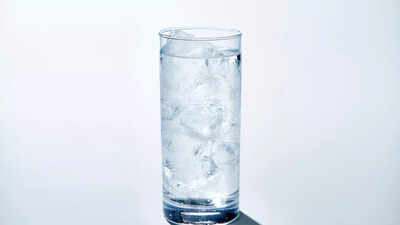The question of whether drinking cold water is detrimental to health has been a topic of discussion. Some believe it can negatively impact digestion by causing the stomach to contract. However, this assertion lacks substantial scientific support.

Both cold water and room-temperature water are effective for hydration. Cold water can be particularly invigorating post-exercise, aiding in body cooling and potentially providing a slight metabolic boost. While individuals with sensitive teeth or digestive systems might experience discomfort, most can consume cold water without adverse effects. Ultimately, the choice is a matter of personal preference. Prioritizing hydration is paramount, and water, regardless of its temperature, is vital for both mental and physical well-being.
Consuming cold water can elicit unexpected bodily responses.
A 1978 Healthline study involving 15 participants indicated that cold water thickened nasal mucus, impeding its passage through the respiratory tract. Conversely, hot water and chicken soup facilitated easier breathing.
For those with specific health issues, cold water may intensify symptoms. Research indicates that cold water consumption can trigger migraines in susceptible individuals (as shown in a 2001 study) and exacerbate achalasia symptoms, a condition that affects the passage of food through the esophagus (according to a 2012 study).
In traditional Chinese medicine, drinking cold water with hot food is thought to disrupt balance, explaining why meals are frequently served with warm water or tea. Similar beliefs exist across cultures, such as the notion that cold water may not provide adequate cooling on a hot day. However, further research is warranted to substantiate these claims.
Reports suggest several benefits associated with drinking cold water:
Drinking cold water might contribute to weight loss, albeit to a limited extent. Potential benefits include:
Newer articles
Older articles
 Esha Gupta Sets Record Straight: Actress Addresses Hardik Pandya Dating Rumors
Esha Gupta Sets Record Straight: Actress Addresses Hardik Pandya Dating Rumors
 Google Maps to Boost Navigation Accuracy with Fused Orientation Provider API
Google Maps to Boost Navigation Accuracy with Fused Orientation Provider API
 Global Vaccination Rates Plunge: Millions of Children Now Vulnerable to Preventable Diseases
Global Vaccination Rates Plunge: Millions of Children Now Vulnerable to Preventable Diseases
 Rishabh Pant: Greg Chappell Hails India Star as Cricket Revolutionary
Rishabh Pant: Greg Chappell Hails India Star as Cricket Revolutionary
 Skin Cancer Alert: How to Identify Suspicious Moles and Early Warning Signs
Skin Cancer Alert: How to Identify Suspicious Moles and Early Warning Signs
 Gavaskar Calls for Kuldeep Yadav's Inclusion in Second Test Amid Bumrah Fitness Concerns
Gavaskar Calls for Kuldeep Yadav's Inclusion in Second Test Amid Bumrah Fitness Concerns
 Is Daily Pooping a Must? Understanding Bowel Regularity and When to Worry
Is Daily Pooping a Must? Understanding Bowel Regularity and When to Worry
 Suryakumar Yadav's Sports Hernia: Understanding the Injury, Recovery, and Risk Factors for Athletes
Suryakumar Yadav's Sports Hernia: Understanding the Injury, Recovery, and Risk Factors for Athletes
 Vijay Sethupathi Apologizes Amid Controversy Over Son Surya's Debut Film 'Phoenix' and Alleged Video Removal Pressure
Vijay Sethupathi Apologizes Amid Controversy Over Son Surya's Debut Film 'Phoenix' and Alleged Video Removal Pressure
 Install Baccarat Hack Tool: The Secret to Winning
Install Baccarat Hack Tool: The Secret to Winning